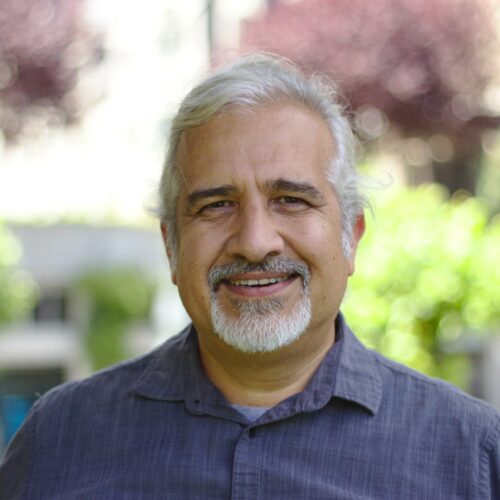
I’ve been a Wikipedian for 18 years. Were it a person, on Friday August 26, my account will be old enough to vote. Over the years, my role has changed from new user to administrator, from pure volunteer to that odd dual role of volunteer editor and Wiki Education staffer. In the last year I experienced an odd identity crisis when the edit count of my work account surpassed that my volunteer account. While my activity waxed and waned over the years, the drive to contribute, to make the internet better by making free knowledge widely available, has remained a constant.
Over those years, Wikipedia has changed dramatically, as has the knowledge environment in which it is embedded.
So many Wikipedians origin stories include an encyclopaedia — maybe bought by parents making a significant financial sacrifice, or an older edition purchased at a garage sale. For me, it was different. I grew up, not just in a world where knowledge was scarce, but also where it was fleeting. I learned about the world through the stories in daily newspapers. Not only did you need to catch it the day it was published — unless, for some reason, you clipped the story, there was no way to go back. Hard facts were only what you captured in your memory, and when people debated what had happened a week or a year or half a decade ago, the only verification was what you remembered.
My perceptions of what was available changed once I went to university, and later to grad school. But even though I knew so much more was available, it still wasn’t accessible. A journal database search was something you needed to request. And whether you read it in a book or a journal, your ability to access a fact depended on the quality of the notes you had taken, and on how well you organized the slips of paper that you worked from.
The internet changed things, but not always for the better. My first decade online (1994 to 2004) saw the birth of the World Wide Web and the rise of the search engine. Though it was growing explosively, the content that was online represented only a sliver of human knowledge. You could find all kinds of weird and wonderful facts online, but finding the same website twice might be a challenge. And whether to trust this arcanum was an open question.
The early 2000s brought further changes. The rise of Web 2.0 and the blogosphere meant that these websites developed more of an identity. The blogger’s creed — I link, therefore I am — meant each blogger was a window onto a world of other sites, often less popular, less widely read, but more likely to be written by an expert. But these were also the days of the Bush administration and their “Post-truth politics”. Bloggers were some of the few to challenge the alleged rationale for the invasion of Iraq, but other blogs and websites emerged as cheerleaders for the administration, or as proponents of dodgy ideas like intelligent design or what was then called global warming skepticism.
This was the state of the world when I began to contribute to Wikipedia. The old ethos of write what you know was crashing into not just a strengthening verifiability policy, but also a (still nascent) idea that you should include citations and a debate over what constituted a reliable source. Calls to include citations also faced another challenge — for many Wikipedians, sources meant sources that were available online. Even if you did consult a scholarly source, before things like Google Scholar and Google Books the only way to search these sources was something like Web of Science, which were slow and clumsy to navigate (assuming you were fortunate enough to have access to a university library).
In a world like this, with Wikipedia on the rise, knowledge was still fragile. The neutral point of view policy gave amateurs the ability to document what experts said without having to decide which experts were correct. The techno-utopian view that we might be above these debates between scholars makes sense until you realize that you need some way to distinguish between the serious scholars and the cranks. To make matters worse, members of the community might support the cranks or worse yet — you might be the one who believes the cranks.
The community eventually figured out a lot of this. Addenda like the “due and undue weight” section of the neutral point of view policy were eventually written. As the breakdown of cultural transmission of the norms of the project broke down under the weight of the “eternal September” of 2006 (where the size of the community exploded), more and more policies and guidelines were written down. The adage that policy was “descriptive, not prescriptive” became less and less true. And the encyclopaedia became less fragile.
Eighteen years after I first registered my account on the English Wikipedia, I’m amazed at what the project has become. When I started contributing to Wikipedia it was at the front lines of “post-truth politics”. Today, not only is it one of the most important sources to combat misinformation and disinformation, it’s also the place where the quality and reliability of sources is debated with more commitment and enthusiasm than anywhere else I’m aware of. It’s far from perfect, it may not even be good enough, but in aggregate, it’s probably the best hope for non-specialists looking for accurate information.
And that is a big achievement.

Bravo!
Congratulations, Ian. Love your essay, and even more, the valuable contributions it reflects. Thanks so much for all your dedicated work.
Your account is a week older than mine! It’s been a pleasure sharing community with you.
Congrats! To think of all the people you’ve helped in that time.